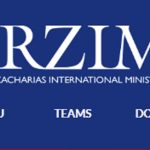UPDATE (1/8/2018) – This morning, I received this statement from a SAMHSA spokesman:
Although the current NREPP contract has been discontinued, SAMHSA is very focused on the development and implementation of evidence-based programs in communities across the nation. SAMHSA’s Policy Lab will lead the effort to reconfigure its approach to identifying and disseminating evidence-based practice and programs.
The Policy Lab is referred to on SAMHSA’s website and is led by Christopher Jones. The Policy Lab was created by the 21st Century Cures Act and is an evolution of SAMHSA’s Office of Policy, Planning and Innovation. Clearly, the issue with the change from NREPP isn’t with the term “evidence-based” since the above statement uses the term and the Cures Act requires evidence-based interventions. For the exact language of the Cures statute, scroll to the end of this post.
——————-
(original post starts here)
Yesterday (Jan 4, 2018), a contractor for the Substance Abuse and Mental Health Services Administration alerted program participants that funding for work on the National Registry of Evidence-Based Programs & Practices had been terminated “for the convenience of the government.” According to a source with the contractor, the work was not terminated due to any problems with their work but because the administration did not want to continue it. According to my source, this action follows a freeze in the work which had been in effect since September, 2017.
the National Registry of Evidence-Based Programs & Practices had been terminated “for the convenience of the government.” According to a source with the contractor, the work was not terminated due to any problems with their work but because the administration did not want to continue it. According to my source, this action follows a freeze in the work which had been in effect since September, 2017.
The NREPP is an effort to alert the public and professional community about evidence-based practices in mental health treatment and prevention. According to SAMHSA’s 2018 budget justification, NREPP helps meet the requirements of the 21st Century Cures Act which requires the government to provide accurate information about what works in the treatment of mental illness and drug/alcohol addiction. SAMHSA is responsible to post this information on an agency website. SAMHSA requested $2.8-million in FY 2018 for NREPP.
According to an email I obtained which was later posted on Twitter by someone else, Development Services Group alerted their constituents that their contract to manage the NREPP’s contents and website had been terminated on December 28, 2017.
The email stated:
It is with great regret that we write to inform you that on December 28, 2017, we received notification from SAMHSA that the NREPP contract is being terminated for the convenience of the government.
This cancellation means that we can no longer make any updates to your program profile. We thank you for the help and cooperation you gave so that we could complete your review.
We are deeply saddened by the government’s sudden decision to end the NREPP contract, under which we have been able to provide and strengthen science-based information about mental health and substance use treatment and prevention programs, both nationally and internationally.
All comments and concerns should be directed to [email protected]
According to DSG, it isn’t clear what will become of NREPP. The reason the process of evaluating programs was given to a contractor was because SAMHSA did not have a sufficient number of staff to do the job. The website may remain but at present no additional guidance has come from SAMHSA. According to DSG, all materials are being returned to the government and not sent to another contractor.
My calls and emails to SAMHSA have not been returned.
It isn’t clear how SAMHSA will meet the mandates of the Cures Act without a functioning evidence-based program. Another open question is why the program was halted in the middle of the fiscal year without cause (“for the convenience of the government”).
(Updates will be added to this posts through the day)
——————
The entire text of the 21st Century Cures Act is here. For the section relevant to the Policy Laboratory and the work on evidence based practices and programs, see below.
SEC. 7001. ENCOURAGING INNOVATION AND EVIDENCE-BASED PROGRAMS.
Title V of the Public Health Service Act (42 U.S.C. 290aa et seq.)
is amended by inserting after section 501 (42 U.S.C. 290aa) the
following:
``SEC. 501A. <<NOTE: 42 USC 290aa-0.>> NATIONAL MENTAL HEALTH AND
SUBSTANCE USE POLICY LABORATORY.
``(a) In General.--There shall be established within the
Administration a National Mental Health and Substance Use Policy
Laboratory (referred to in this section as the `Laboratory').
``(b) Responsibilities.--The Laboratory shall--
``(1) continue to carry out the authorities and activities
that were in effect for the Office of Policy, Planning, and
Innovation as such Office existed prior to the date of enactment
of the Helping Families in Mental Health Crisis Reform Act of
2016;
``(2) identify, coordinate, and facilitate the
implementation of policy changes likely to have a significant
effect on mental health, mental illness, recovery supports, and
the prevention and treatment of substance use disorder services;
``(3) work with the Center for Behavioral Health Statistics
and Quality to collect, as appropriate, information from
grantees under programs operated by the Administration in order
to evaluate and disseminate information on evidence-based
practices, including culturally and linguistically appropriate
services, as appropriate, and service delivery models;
``(4) provide leadership in identifying and coordinating
policies and programs, including evidence-based programs,
related to mental and substance use disorders;
``(5) periodically review programs and activities operated
by the Administration relating to the diagnosis or prevention
of, treatment for, and recovery from, mental and substance use
disorders to--
``(A) identify any such programs or activities that
are duplicative;
``(B) identify any such programs or activities that
are not evidence-based, effective, or efficient; and
``(C) formulate recommendations for coordinating,
eliminating, or improving programs or activities
identified
[[Page 130 STAT. 1221]]
under subparagraph (A) or (B) and merging such programs
or activities into other successful programs or
activities; and
``(6) carry out other activities as deemed necessary to
continue to encourage innovation and disseminate evidence-based
programs and practices.
``(c) Evidence-Based Practices and Service Delivery Models.--
``(1) In general.--In carrying out subsection (b)(3), the
Laboratory--
``(A) may give preference to models that improve--
``(i) the coordination between mental health
and physical health providers;
``(ii) the coordination among such providers
and the justice and corrections system; and
``(iii) the cost effectiveness, quality,
effectiveness, and efficiency of health care
services furnished to adults with a serious mental
illness, children with a serious emotional
disturbance, or individuals in a mental health
crisis; and
``(B) may include clinical protocols and practices
that address the needs of individuals with early serious
mental illness.
``(2) Consultation.--In carrying out this section, the
Laboratory shall consult with--
``(A) the Chief Medical Officer appointed under
section 501(g);
``(B) representatives of the National Institute of
Mental Health, the National Institute on Drug Abuse, and
the National Institute on Alcohol Abuse and Alcoholism,
on an ongoing basis;
``(C) other appropriate Federal agencies;
``(D) clinical and analytical experts with expertise
in psychiatric medical care and clinical psychological
care, health care management, education, corrections
health care, and mental health court systems, as
appropriate; and
``(E) other individuals and agencies as determined
appropriate by the Assistant Secretary.
``(d) Deadline for Beginning Implementation.--The Laboratory shall
begin implementation of this section not later than January 1, 2018.
``(e) Promoting Innovation.--
``(1) In general.--The Assistant Secretary, in coordination
with the Laboratory, may award grants to States, local
governments, Indian tribes or tribal organizations (as such
terms are defined in section 4 of the Indian Self-Determination
and Education Assistance Act), educational institutions, and
nonprofit organizations to develop evidence-based interventions,
including culturally and linguistically appropriate services, as
appropriate, for--
``(A) evaluating a model that has been
scientifically demonstrated to show promise, but would
benefit from further applied development, for--
[[Page 130 STAT. 1222]]
``(i) enhancing the prevention, diagnosis,
intervention, and treatment of, and recovery from,
mental illness, serious emotional disturbances,
substance use disorders, and co-occurring illness
or disorders; or
``(ii) integrating or coordinating physical
health services and mental and substance use
disorders services; and
``(B) expanding, replicating, or scaling evidence-
based programs across a wider area to enhance effective
screening, early diagnosis, intervention, and treatment
with respect to mental illness, serious mental illness,
serious emotional disturbances, and substance use
disorders, primarily by--
``(i) applying such evidence-based programs to
the delivery of care, including by training staff
in effective evidence-based treatments; or
``(ii) integrating such evidence-based
programs into models of care across specialties
and jurisdictions.
 Institute. The email from the student development office also has been posted several places around the web by now, and I have it here below. In short, the Moody Board of Trustees has accepted the resignations of president Paul Nyquist and chief operating officer, Steve Mogck; and the retirement of provost Junias Venugopal.
Institute. The email from the student development office also has been posted several places around the web by now, and I have it here below. In short, the Moody Board of Trustees has accepted the resignations of president Paul Nyquist and chief operating officer, Steve Mogck; and the retirement of provost Junias Venugopal.




